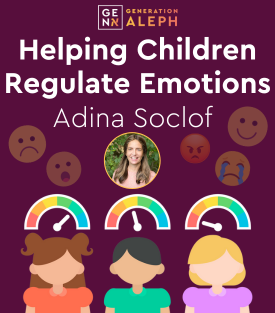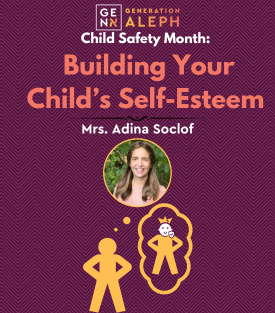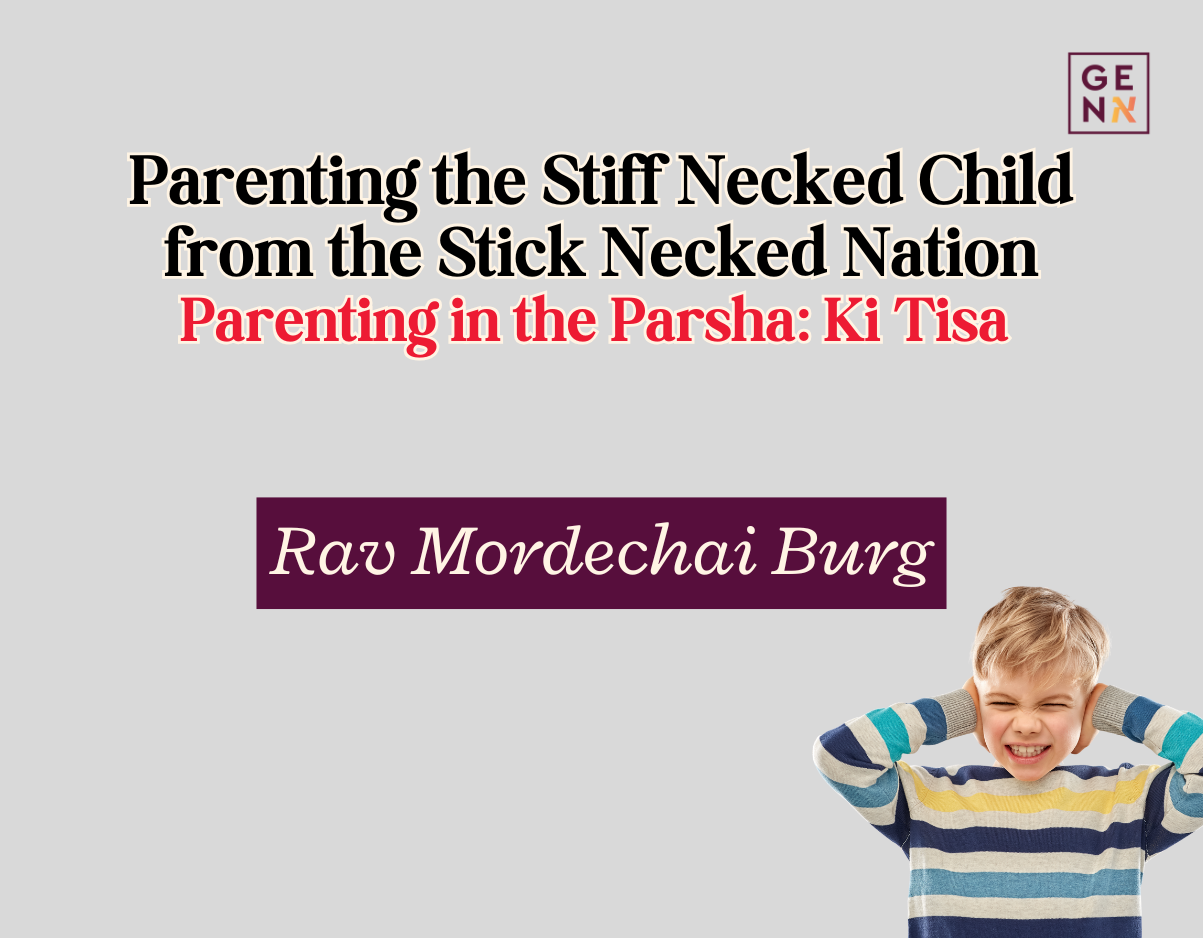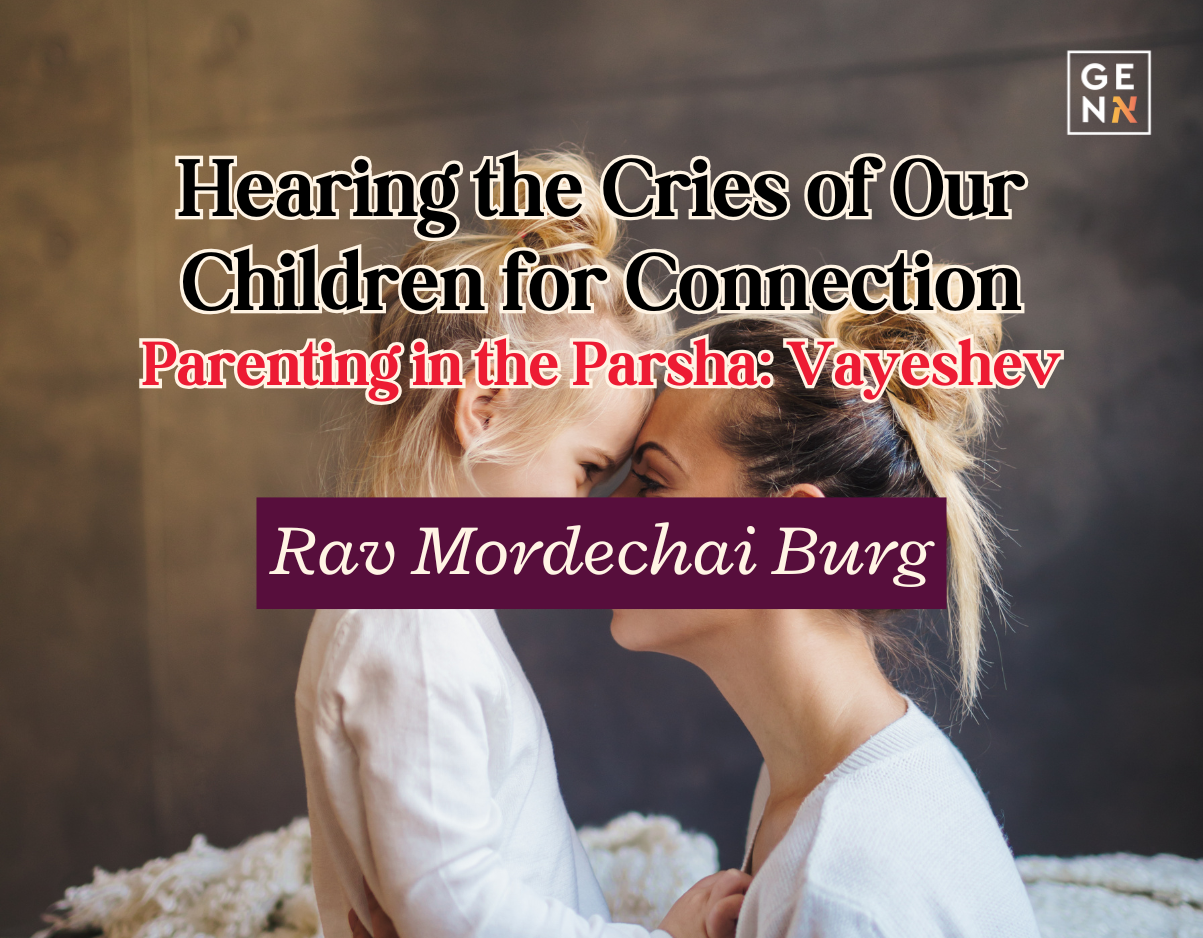“There are three partners in the making of a person: the father, the mother and HaShem” (Kiddushin, 30b)
As we know, one of the most critically important challenges facing parents today is their potential, ability and capacity to forge meaningful and lasting relationships with their children.
This challenge is not only an essential component for the growth of a child’s social, emotional and cognitive development, but also helps create one of the most critically important components a child’s wellbeing at home and in school.
At first blush, the importance of forging successful relationships between parents and their children, appears to be somewhat obvious. To be sure, what 21st century parent would not want to have a positive, nurturing, loving and caring relationship with their children? Having said that, there are many parents’ today, who are unfortunately struggling to provide their children with the kinds of supportive home/parental environments which impact positively on their children’s growth, development and success.
Research in education and child development as well as Judaic texts strongly suggests that the parent-child relationship is one that nurtures the physical, emotional and social development of the child. It is a unique bond that every child and parent can enjoy and nurture. This relationship also lays the foundation for the child’s personality, life choices and overall behavior. This hypothesis supports the dictum “Educate a child according to his way and when he is old, he will not depart from it (Perkei Avot, 22:6)
Several of the amazing benefits resulting from these important relationships include, but are not limited to providing our children with unconditional love and affection.
Parents must always, (with no exception), provide their children with loving and nurturing home environments while creating and maintaining clear standards and boundaries. It represents a continuous balance – for as we learn – good parenting is when: “the right hand draws near and the left hand pushes away” (Sanhedrin, 107B).
We must always engage our children b’darchei noam – peacefully and pleasantly; and, we must always be diligent to ensure that our children develop a comfort zone base on trust, and derech eretz.
Several important guiding principles and actions which exhibit meaningful parent- child relationship include:
- A child who has a secure relationship with a parent learns to regulate emotions under stress and in difficult situations;
- Healthy parental involvement and intervention in the child’s day-to-day life lay the foundation for better social and academic skills (whether it be limudei kodesh or chol);
- Children who gain stronger long-term, problem-solving skills when they have positive relationships with their parents
- Young children who grow up with a secure and healthy attachment to their parents, stand a far better chance of developing happy and content dispositions and relationships with others in their life.
Several characteristics of a positive parent-child relationship are evidence when:
- There is a warm and loving interaction between parent and child;
- There are advances through boundaries, rules and consequences
- Have parents who listen very carefully and empathize often with their children;
- Are engaged in problem-solving with the child, thereby helping the child to problem-solve and develop higher order problem-solving skills in the future.
As we begin to drill down a bit deeper into the myriad of ways in which to build and maintain stronger and more sustainable positive parent-child relationships, we are reminded of our roles as parents, teachers and mentors. These later responsibilities and obligations are clearly delineated in Bereishit 18:19, where we learn “for I know him, that he will instruct his children and his household after him, so that they will keep the path of HaShem, to do riotousness and justice”.
But, first and foremost, it is absolutely essential that parents view the parent-child relationship as a top priority. This means devoting significant time and energy to building and growing the relationship with the child.
Today, we are all living in time-starved environments. These restraints and constraints must be circumvented by the parent in order to provide the child with the required support children so desperately require. To be sure, as stated in Perkei Avot, 2:21) Rabbi Tarfon says, “you are not required to complete the task, yet you are not free to withdraw from it.”
Concerted efforts must be made to continuously create a solid foundation for our children, based upon trust, dependence, confidence and a positive growth mindset – with the hope that the foundation will create a meaningful and trajectory for them to pursue.
Several critically important ways to ensure that parents are building positive relationships with their children require that parents;
- Continuously seek ways to boost a child’s self-esteem;
- Complement the child when the child reaches a positive millstone;
- Be a good listener; listen carefully what your child is communicating;
- Always set limits and boundaries and be consistent in your approach to discipline;
- Serve as a positive role model (how you speak and relate to others);
- Always try hard to be flexible with your time so that you can “adjust” your parenting style to the needs of your child
- Be clear and transparent in your communication with your child and always be transparent;
- Never hold back to show your child unconditional love and affection;
- Have a good sense of self regarding your strengths and weaknesses.
According to Tractate Ta’anit (20a), we learn that “good parenting also knows when to be flexible, as the Talmud beautifully states: “a person should never be as inflexible as a cedar tree but pliable as a reed”.
This analogy, although somewhat obvious requires consistent constant reminding.
When it comes to building an effective and positive relationship with your child, always keep in mind that there are no “do-overs”. This means that we must always be circumspect regarding the value of these relationships, never take your children for granted, and about all, never postpone important interactions and bonding opportunities with your children.
Are these rules, guidelines and strategies easy to carry out or follow? Absolutely not. But, who ever said that effective parenting would be easy.
Like every important challenge in life…..it will require hard work, due-diligence, grit, an unswerving commitment; and, a sense of urgency.
Dr. Rabbi Abraham Twersky, of blessed memory, wrote a beautiful statement about Jewish parenting in Moment magazine’s special Symposium entitled: Is There a Jewish Way to Parent? (January 7, 2016).
He posits that “Jewish parenting should be tied to what Judaism is all about; and that traditional Jewish values have been handed down as immutable. Parents need to know that. You cannot change this because of convenience. If you take the view that religion is about obligation and duty, then everything falls into place.
This important message should be clear. It is our individual and collective obligation to ensure that parents continue to be mindful of this commitment; and we must always insure that our parents possess the resources and information required to fulfill this and sacred obligation and mission.
“Chanoch L’naar al pi darko, gam ki yazkin lo yasur mimenu (Mishlei, 22:00) – Train the youth according to his way, so that even when he ages, he will not deviate from it”.
This legendary proof text, continues to inspire us to always remember that each child is special and unique; the investment of time and energy we make in them is an essential investment in their future; and that each and every child deserves and requires the love, attention and care they seek and need.
It is our individual and collective responsibility (and obligation) as parents to fulfill this holy charge and mandate.
———————————————————————————————————
Dr. Chaim Y. Botwinick is currently Executive Director of the Sha’arei Bina Torah Academy for Girls, Hollywood, FL, Executive Coach and Consultant. He served as President and CEO of the central agency for Jewish education in Baltimore and Miami; and as day school principal and head of school. Dr. Botwinick has lectured and published extensively on a wide variety of topics including his passion – Strategic Planning and Leadership Development in education. He is the author of “Think Excellence”, Brown Books, 2011.
Submit your questions
"*" indicates required fields











